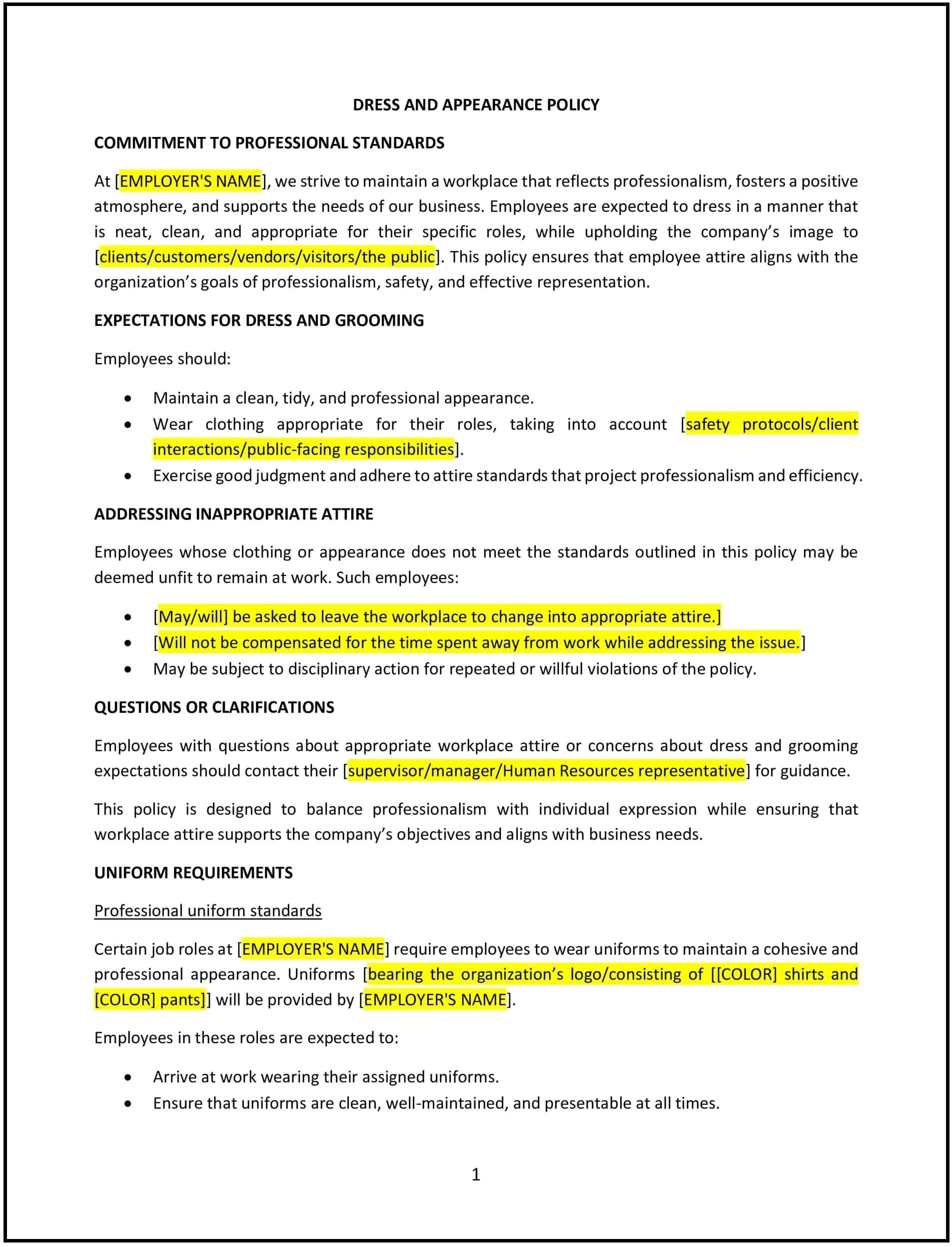Dress and appearance policy (North Carolina): Free template
Got contracts to review? While you're here for policies, let Cobrief make contract review effortless—start your free review now.

Customize this template for free
Dress and appearance policy (North Carolina)
A dress and appearance policy helps North Carolina businesses establish clear expectations for employees regarding appropriate clothing and personal grooming while at work. The policy defines the company’s standards for dress code based on the nature of the business, the role of the employee, and the company culture, while allowing for flexibility where needed.
By adopting this policy, businesses can ensure a professional work environment that aligns with company values, supports brand image, and maintains a level of comfort for employees while considering diversity and inclusivity.
How to use this dress and appearance policy (North Carolina)
- Define acceptable dress code: Specify the standards of dress for employees, including any uniform requirements, business casual, formal attire, or industry-specific standards (e.g., healthcare or manufacturing).
- Allow for flexibility: Include guidelines for appropriate attire based on work environments and activities, such as meetings with clients or casual Fridays.
- Address personal grooming: Outline expectations for personal grooming, such as hairstyle, facial hair, and hygiene, in a way that reflects the company’s professional image.
- Consider religious and cultural attire: Ensure that the policy accommodates employees' religious or cultural dress requirements in accordance with North Carolina anti-discrimination laws.
- Define exceptions: Specify any exceptions to the policy, such as for employees working remotely or in industries with specific attire requirements (e.g., safety gear in construction).
- Reflect North Carolina-specific considerations: Ensure the policy complies with North Carolina state laws regarding workplace discrimination, providing reasonable accommodation where necessary.
Benefits of using this dress and appearance policy (North Carolina)
This policy provides several benefits for North Carolina businesses:
- Maintains professionalism: Ensures employees present themselves in a manner consistent with the company’s brand and image, contributing to a professional environment.
- Promotes inclusivity: A well-structured policy allows flexibility for diverse cultures and lifestyles, ensuring that all employees feel respected and valued.
- Enhances company image: A consistent and clear dress code enhances the company’s public image, making a good impression on clients, customers, and visitors.
- Supports employee comfort: By setting guidelines that are appropriate for the workplace environment, employees can dress comfortably while still adhering to company expectations.
- Reduces workplace conflicts: A clear dress code minimizes confusion and disagreements related to clothing, promoting harmony in the workplace.
Tips for using this dress and appearance policy (North Carolina)
- Communicate the policy clearly: Ensure all employees are informed of the company’s dress and appearance expectations, especially during onboarding.
- Review dress code compliance regularly: Monitor employee adherence to the policy and provide feedback or corrective actions when necessary.
- Be flexible: Allow employees to express their individuality within the boundaries of the company’s professional standards, particularly for employees in creative or tech roles.
- Update the policy as needed: The policy should be reviewed periodically to ensure it remains aligned with changes in North Carolina laws and company practices.